Jane Goodall's final lesson
Honoring Jane Goodall's life, Pope Leo's first climate address, and finding hope in action
When I was young, we didn’t have a TV; but every Friday night my mom would bring home movies from the library—sometimes classics like The Sound of Music, but often National Geographic documentaries. The one I remember most vividly featured a young British woman living in Africa, working with chimpanzees. That was the first time I’d seen a scientist in action, and I was fascinated. Of course, it was Jane Goodall!

Decades later, in 2015, I was part of a small team of experts supporting low-income countries in their negotiations at the Paris climate talks. While there, I was also speaking at many side events—and when I realized Jane Goodall was on the program for one of these events, I couldn’t wait. Thanks to a kind colleague (that being Andrew Freedman), I managed to get backstage early, before my talk—and there I was, meeting Jane Goodall and Sylvia Earle at the same time. It was a dream come true for my four-year-old self.
By then, Jane was more than 80; but slowing down was never an option. She still spent more than 300 days a year on the road speaking, teaching, and reminding us that in action, we find hope. In 2021, she published The Book of Hope, and just last year, at the 2024 STARMUS Festival, I took this picture (below, left) just before she bounded onstage in her trademark sneakers. As she spoke, her energy filled the arena. My own talk was right after hers, and I closed it with one of her unforgettable quotes: “Only when our clever brain and our human heart work together in harmony can we achieve our true potential.”
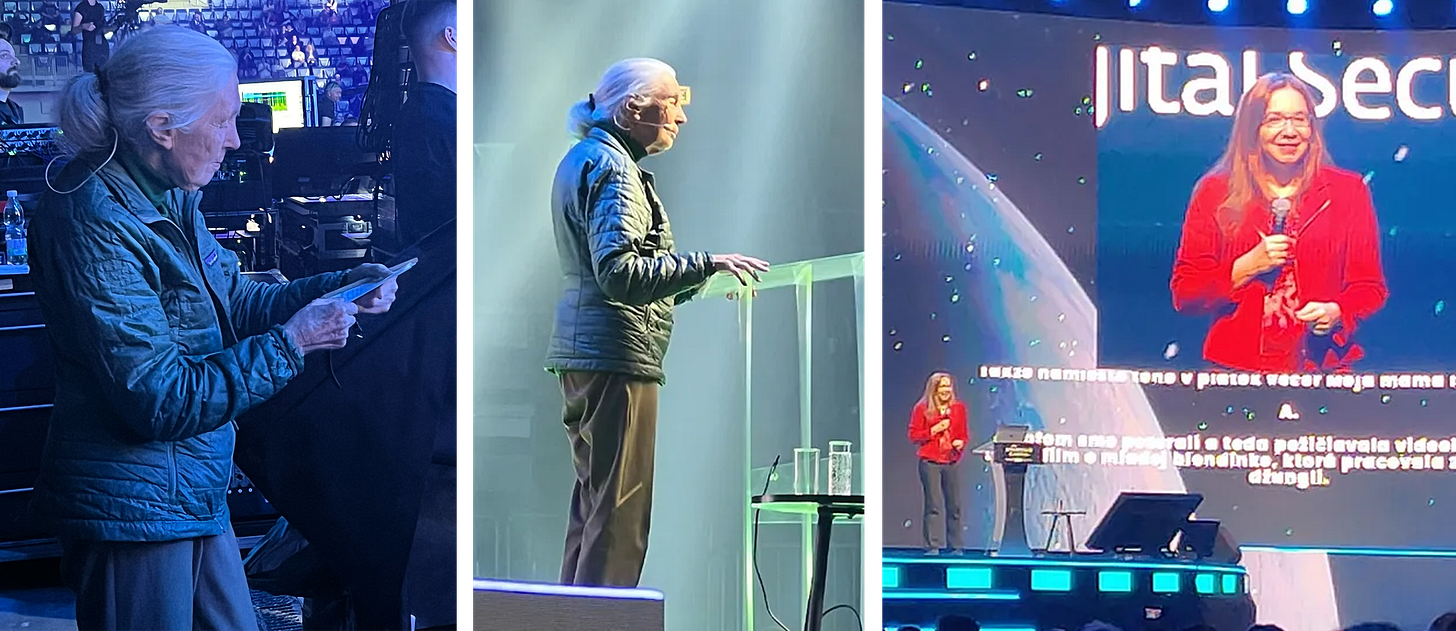
I am forever grateful I had the chance to meet her, to thank her, and to be one of the hundreds of thousands whose lives and work have been influenced by her. With Jane’s passing, the world has lost one of its greatest advocates for people and nature. But I know that her words, her example, and her hope will live on.
Jane Goodall passed away this Wednesday at age 91. A dedicated advocate until the very end, Jane had just finished a full slate of events at Climate Week in New York and was set to speak to a group of schoolchildren in Pasadena, California at a tree planting initiative launched in partnership with her foundation.
Jane’s early research observing chimpanzees in Gombe National Park revolutionized the field of primatology. It also led her to become a passionate conservationist and humanitarian, as she understood how similar and how closely linked our own well-being is to that of nature, and how critically the future of nature depends on the choices humans make.
Jane also understood the role natural solutions could play in solving the climate crisis. “There’s a much cheaper and a very age-old way of solving at least a major part of the climate crisis,” she said. “Protect and restore our forests. Plant trees, as trees are going to take a long time to get the full carbon capture capacity of an old forest. That’s why protecting the Amazon is so important now, and the Congo Basin and [forests] in Indonesia and Malaysia.”
Presciently, in one of Jane’s last interviews at Climate Week in NYC, she was asked “how will people remember you when you’re gone?” Her response was clear: as an advocate for animals and nature. She went on to describe the harms of factory farming and deforestation, in terms of their impacts on animals, people, and climate. Isaias Hernandez, one of Talking Climate’s former guest editors, caught her response on video, and you can watch it here! You can also see one of Jane’s final interviews in full here at Forbes at Climate Week in NYC.
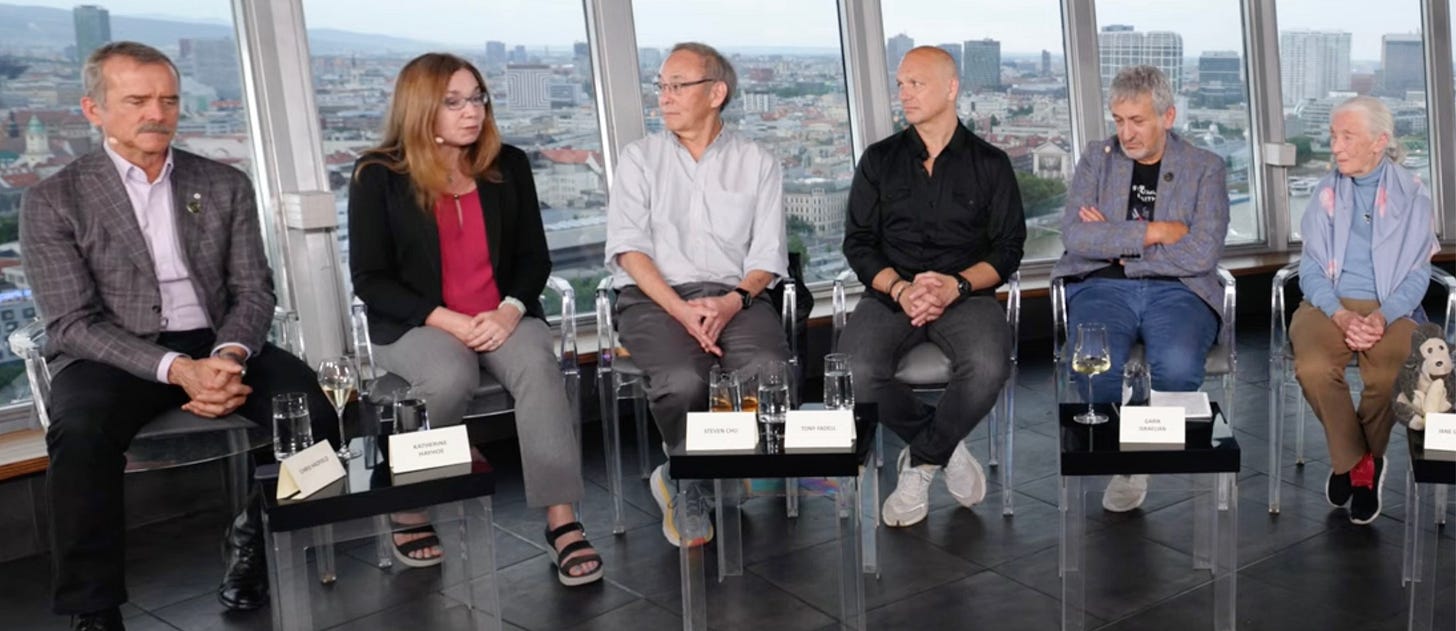
Jane was always a fearless defender who never minced words. If you want to watch her telling the Commander of the ISS exactly what she thinks of animals in space, and the US Energy Secretary and Nobel Prize-winning physicist getting snapped at for getting in her way, watch this! (photo of the panel pictured above).
This past April, the world lost another staunch advocate for people and climate, Pope Francis. When his successor, Pope Leo XIV, was appointed, many wondered whether he would make climate change a similar priority. Well, wonder no more!
Last week, Pope Leo hosted a conference on climate change to mark the 10th anniversary of Laudato Si, called “Raising Hope for Climate Justice.” The conference featured a broad range of speakers from across the Christian faith, including Filipino climate activist Yeb Saño, environmentalist, author, and Third Act co-founder Bill McKibben, and climate scientist Jessica Moerman, president of the Evangelical Environmental Network (EEN) and a former Talking Climate guest editor. I was honoured to be able to participate in this conference virtually as well; you can watch my brief remarks here.
At the conference, Pope Leo gave his first major address on climate. He continued Pope Francis’ emphasis on rebuking those who “have chosen to deride the increasingly evident signs of climate change, to ridicule those who speak of global warming, and even to blame the poor for the very thing that affects them the most.” He also emphasized the importance of individual voices to call for change, reminding everyone that “citizens need to take an active role in political decision making at national, regional and local levels. Only then will it be possible to mitigate the damage done to the environment.”
Even as we lose voices like Jane Goodall and Pope Francis, they continue to inspire others to step up today. From faith leaders to scientists, activists to everyday citizens, more and more are continuing the work of building a just and livable future.
The “to do” this week is simple – let’s do what Jane told us to!
First, she never let the idea that “I’m just one person, so there’s nothing I can do” stop her. Every day, she reminded us of the impact we can have, with memorable quotes like, “You cannot get through a single day without having an impact on the world around you. What you do makes a difference, and you have to decide what kind of difference you want to make.”
The The Jane Goodall Institute has some concrete suggestions of actions you can take: share her story, take time to connect with nature, lead with kindness, and support one of the many organizations and efforts she did -- “from caring for nature and wildlife to acts of kindness and community engagement,” as they put it.
Second, Jane was a relentless advocate for hope. In a 2021 interview, she shared how she worried about the future young people would inherit, but she refused to give in to despair. Jane warned people that, “I’m about to leave the world and leave it behind me with all the mess, whereas young people have to grow up into it, that’s why they need every bit of help they can. If they succumb to the doom and gloom, which many have, then they lose hope.”
“If you lose hope, that’s the end. Because if you don’t hope that there’s a way out, if you don’t hope that your actions can make a difference, then you sink into apathy and do nothing,” she said. “Hope is absolutely crucial if we’re to get through this.”
Her passing triggered the launch of a secret Netflix documentary series called “Famous Last Words.” In it, she shares what she wants people to know after she’s gone, concluding with these words:
“You have it in your power to make a difference. Don’t give up. There is a future for you. Do your best while you’re still on this beautiful Planet Earth that I look down upon from where I am now. God bless you all.”
The best tribute we can offer is to follow her lead: act with courage, lead with kindness, and never, ever give up hope.
Stay tuned for my updates from the World Conservation Congress on 10/10 through 10/13!



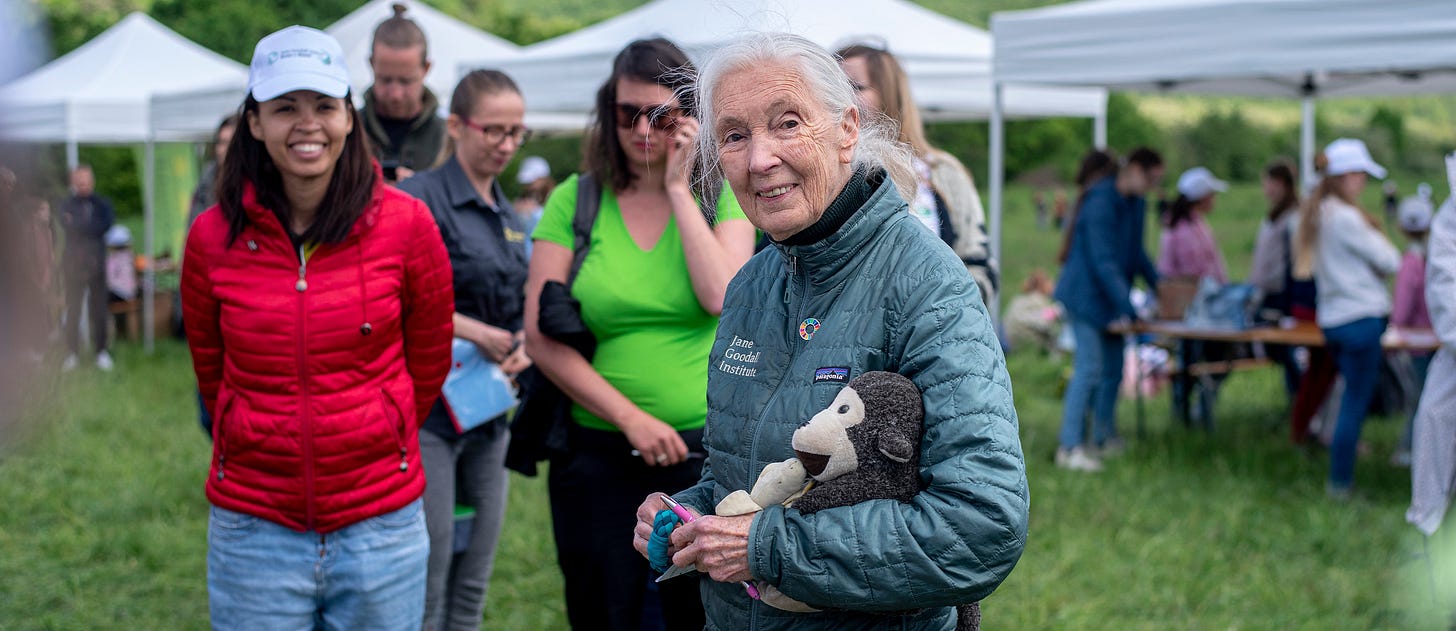

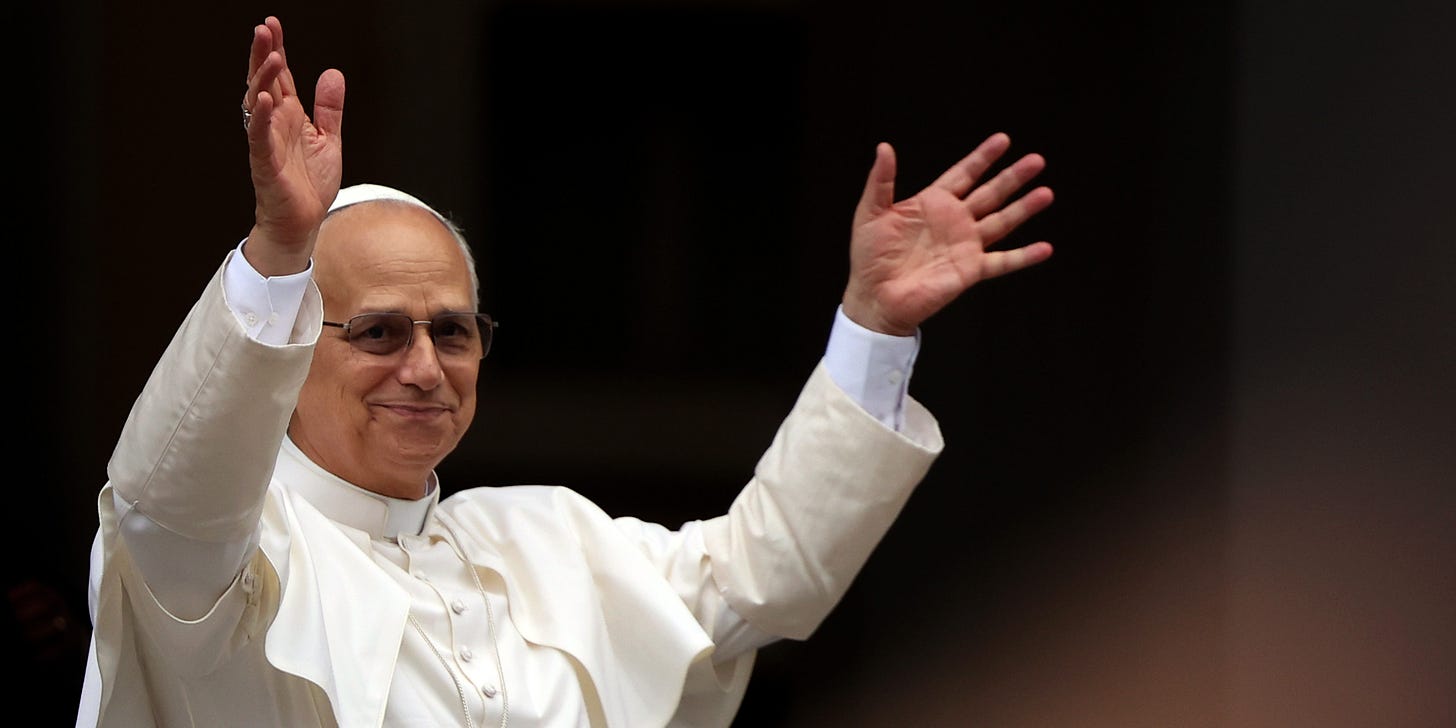

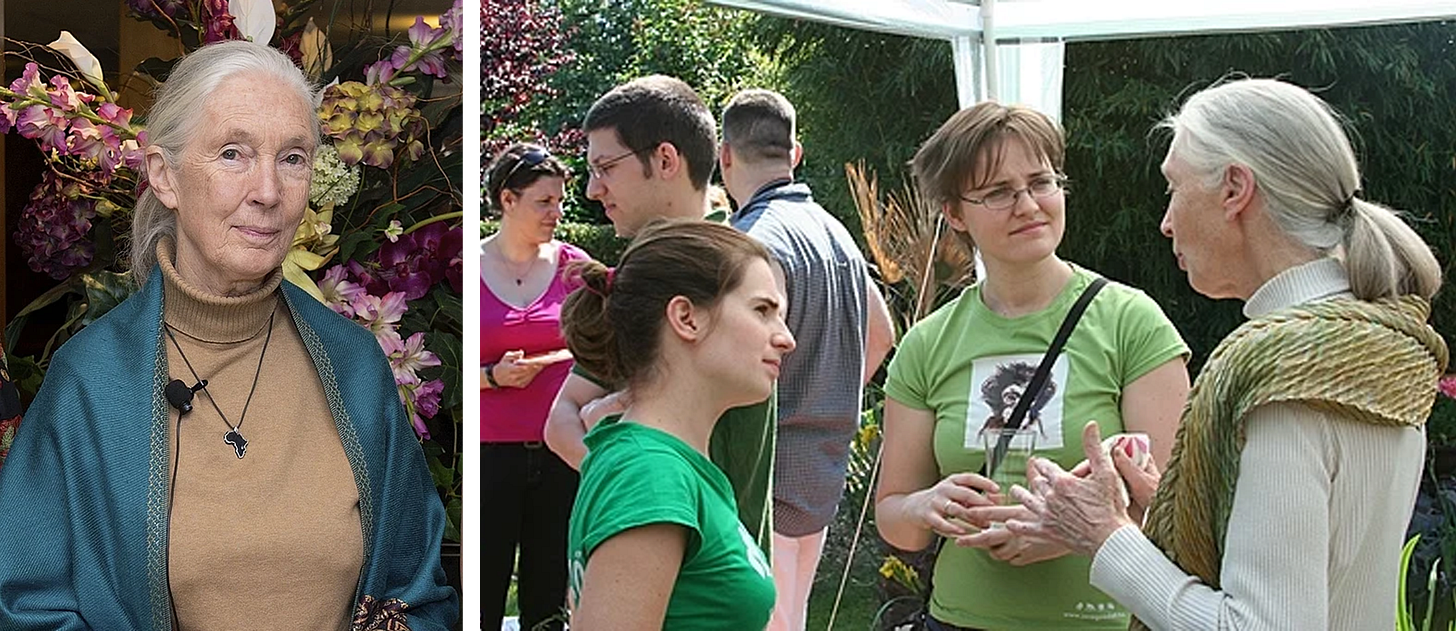

Altruism for animals may be the strongest force out there bringing back empathy into everything we do again.
Jane Goodall has been an inspiration throughout my life, one of the first environmental advocates I ever knew.